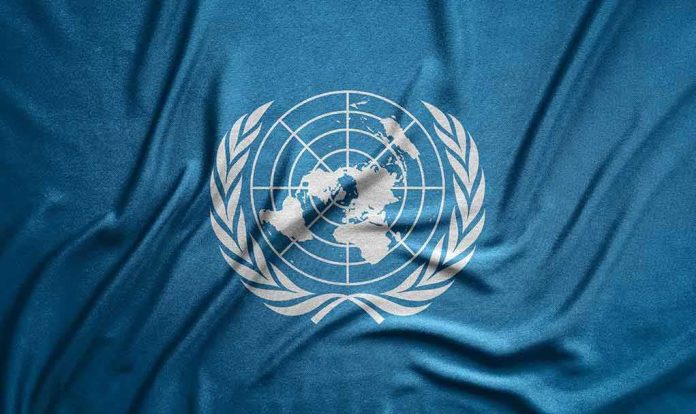
The Trump administration’s bold move to slash UN peacekeeping budgets highlights a significant shift towards fiscal responsibility and efficiency, challenging ineffective global operations.
Story Overview
- The Trump administration negotiated a 25% reduction in UN peacekeeping forces.
- A 15% cut in the peacekeeping budget was agreed upon with the UN.
- This marks a significant shift in U.S. policy towards cost-cutting and efficiency.
- The U.S. aims to reduce financial burdens and promote UN reform.
Trump Administration Pushes for Reform
The Trump administration has successfully negotiated with the United Nations to implement a 25% reduction in its peacekeeping forces and a 15% cut in the peacekeeping budget. This move is part of a broader effort to reform the UN’s financial management and address concerns over ineffective peacekeeping missions. The agreement was reached during a meeting between U.S. Ambassador Mike Waltz and UN Secretary-General António Guterres. Previously, the Trump administration had withheld significant portions of its UN funding, citing inefficiencies and the need for reforms.
Historically, the United Nations has faced challenges in managing its peacekeeping operations efficiently. The U.S., being a major contributor to UN funding, has periodically called for reforms to address perceived inefficiencies. Notably, in the late 1990s, Senator Jesse Helms led efforts to withhold U.S. contributions to force UN reforms, resulting in a compromise that reduced the U.S. share of the UN administrative budget.
Current Developments in UN Peacekeeping
Recently, the Trump administration agreed to pay about half of its $1.4 billion in dues to the UN peacekeeping department for 2025, leaving significant arrears. The U.S. has proposed eliminating funding for UN peacekeeping missions in 2026, citing operational failures. U.S. officials continue to emphasize the need for UN reforms and cost-cutting measures, while the UN acknowledges the necessity of reducing its peacekeeping forces due to funding constraints.
The UN is implementing the agreed-upon reductions and exploring contingency plans for potential future funding shortfalls. In August 2024, the Trump administration unilaterally canceled some $800 million in peacekeeping funding for 2024 and 2025. By early 2025, an agreement was reached to reduce peacekeeping forces and budget, and by July 2025, the Trump administration proposed eliminating UN peacekeeping funding for 2026.
Implications and Perspectives
The short-term implications of reduced peacekeeping presence may affect conflict zones, potentially destabilizing regions. In the long-term, this could lead to a more efficient UN but may also undermine its ability to respond effectively to global crises. Local communities in areas where peacekeeping missions are reduced may face increased insecurity, and UN personnel and contractors will be affected by job losses.
Economically, the reduction in funding could strain local economies dependent on UN operations, and socially, reduced peacekeeping could exacerbate humanitarian crises. Politically, this reflects a shift in U.S. foreign policy priorities and may strain U.S.-UN relations. While critics argue that the cuts could undermine global security, supporters see the move as a necessary step towards fiscal responsibility and reform.
Experts argue that while cost-cutting is necessary, it must be balanced with maintaining effective peacekeeping capabilities. Some view the U.S. actions as a strategic move to reshape global governance structures. Academics highlight the need for sustainable funding models that ensure the UN’s operational capacity while addressing inefficiencies. Despite budget constraints, maintaining peacekeeping effectiveness remains crucial.
Sources:
Trump Admin Gets UN To Slash ‘Ineffective’ Peacekeeping Force’s US-Funded Budget
UN to Slash Peacekeeping Forces by 25% Amid Budget Pressures
Funding the United Nations: What Impact Do US Contributions Have on UN Agencies and Programs?
US Agrees to Pay Some, But Not All, of Its UN Peacekeeping Bill














